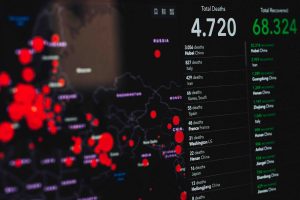 Nursing home patients in San Diego County and throughout the U.S. are particularly vulnerable to infections and illness as a result of age and underlying conditions, even when the world is not experiencing a coronavirus pandemic. However, in this moment of the pandemic caused by the novel coronavirus, news reports across the country are reflecting the ways in which nursing home residents are uniquely vulnerable to the virus and, in particular, to death as a result of contracting it. As such, many nursing homes have limited how visitors can see their loved ones at nursing homes and assisted-living facilities in order to prevent the spread of the virus among the elderly. At a moment when residents of California’s nursing homes are especially vulnerable to illness, the Trump Administration announced plans to relax federal oversight of nursing homes.
Nursing home patients in San Diego County and throughout the U.S. are particularly vulnerable to infections and illness as a result of age and underlying conditions, even when the world is not experiencing a coronavirus pandemic. However, in this moment of the pandemic caused by the novel coronavirus, news reports across the country are reflecting the ways in which nursing home residents are uniquely vulnerable to the virus and, in particular, to death as a result of contracting it. As such, many nursing homes have limited how visitors can see their loved ones at nursing homes and assisted-living facilities in order to prevent the spread of the virus among the elderly. At a moment when residents of California’s nursing homes are especially vulnerable to illness, the Trump Administration announced plans to relax federal oversight of nursing homes.
According to a recent article in The New York Times, the Trump Administration’s proposal “would loosen federal rules meant to control infections, just as the coronavirus rips through nursing homes.” The following is some information you should know about plans to relax federal oversight of nursing homes and what that could mean for elderly residents.
Rule Changes Were Proposed Last Summer
The Trump Administration’s plans did not arise out of the coronavirus pandemic, but rather were announced as a possibility in summer 2019. In July, the Centers for Medicare and Medicaid Services (CMS) “set in motion a plan to weaken rules imposed by the Obama administration that required every nursing home to employ at least one specialist in preventing infections.” To be clear, the proposed rule would make it so late nursing homes in the U.S. no longer would be required to have an anti-infection specialist on their staff, even in a part-time position. Given that these roles are crucial for preventing the spread of infection in nursing homes, the decision—even outside the pandemic context—is an extremely disconcerting one.
Within the context of the coronavirus pandemic, the proposed weakening of the rules look especially dangerous. And, as we mentioned, although CMS began initiating these proposed changes began well before the spread of the coronavirus, CMS has not announced plans to stop implementation of the rules as a result of the outbreak.
What the Proposed Rules Would Do
The Trump administration changes would only require nursing homes to have an anti-infection specialist spend “sufficient time at the facility.” The term “sufficient time,” critics of the proposal argue, is “so vague that it would be essentially meaningless.”
Anti-infection specialists serve an essential role in nursing homes, making sure that staff members abide by safety protocols that are in place to prevent infections in the first place, and to stop their spread when they do occur. On an annual basis, an average of 380,000 nursing home residents die as a result of infections.
Attorneys General are Opposed to the Rule Changes
In at least 17 states across the country, attorneys general have spoken out against the proposed rule changes. Indeed, they have described the shift as a threat to “the mental and physical security of some of the most vulnerable residents of our states,” according to the article in The New York Times.
Contact a Nursing Home Abuse Lawyer in San Diego County
If you have questions about an elderly loved one’s health or safety, or concerns about the impact of the proposed rule changes, you should speak with an experienced San Diego nursing home abuse attorney at our firm. Contact the Walton Law Firm for more information.
See Related Blog Posts:
Risk of Coronavirus Spread in Southern California Nursing Homes
Keep Our Nursing Home and Assisted Living Residents Safe
 California Nursing Home Abuse Lawyer Blog
California Nursing Home Abuse Lawyer Blog








